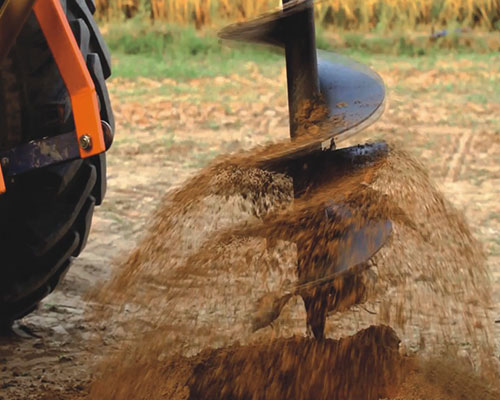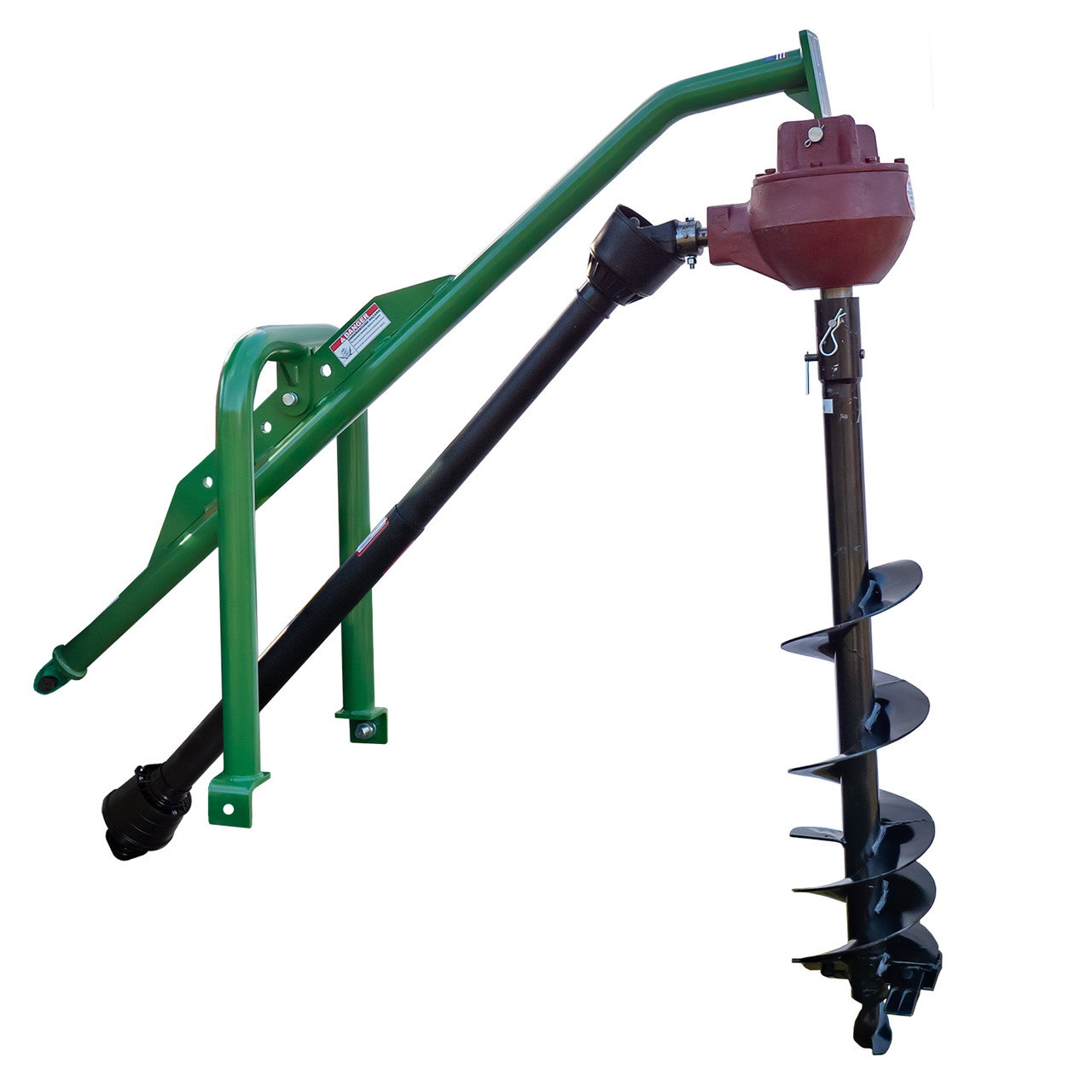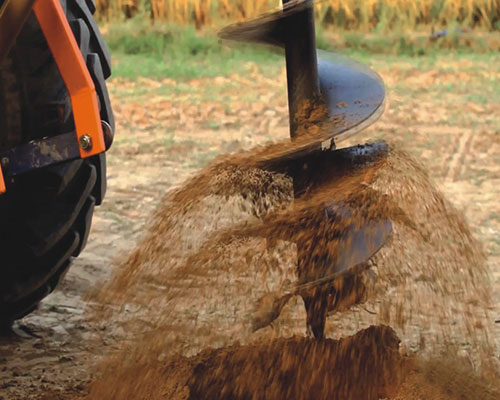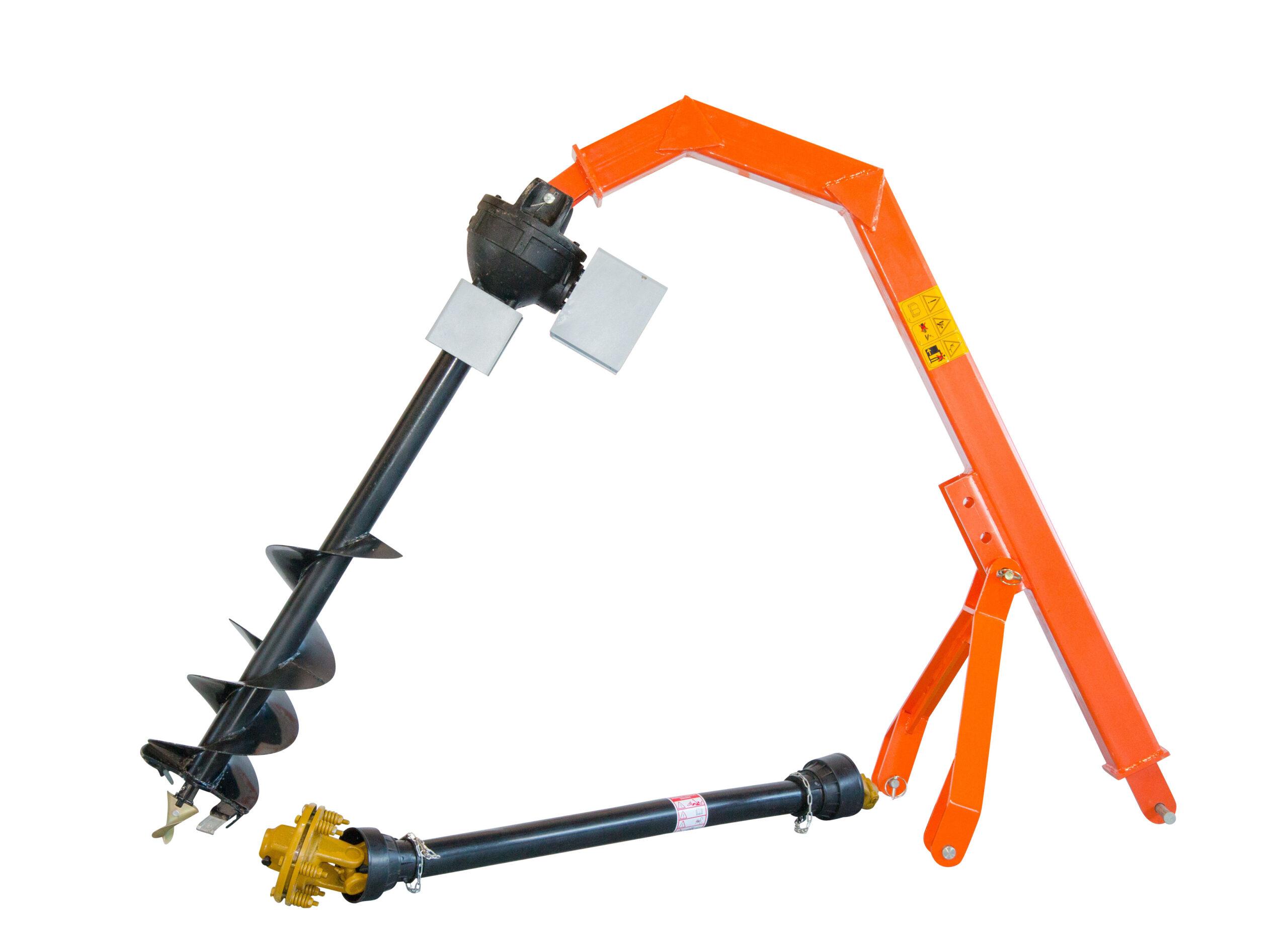Product Description
Suitable for 2 person operate, 68cc gasoline engine Earth auger . φ25mm tube , oval elbow & detachable, foldable handle design , also with dipping rubber on handle . The width of the handle is suitable for human mechanics, easy to control. The most popular package way is Earth auger with manual , tool kits and other attached accessories of the earth auger, packaged in 1 carton/ color box . Each pcs auger bit pakcage by each carton . The second popular package way is 1 pcs earth auger machine with each pcs of auger bit φ 100, 200,250mm auger bit , spring reducer , 600mm extender package in 1 carton .
Certificate : CE EMC EURO-V EPA ISO9001-2015
This machine Max drive ability : ≤ φ 300mm auger bit , but we recommend drive :≤φ 250mm auger bit . Becasue of there are more diffirent model auger bits can match with this machine. so please check earth auger bit in our website to choose the ideal model and size . then let us know , we will make offer
The offer is reference . Wellcome to contact us to talk about more detials , Such as OEM , ODM and so on
| Feature: | 2-Stroke |
|---|---|
| Bit Diameter(mm): | 300 |
| Style: | Hand-Held Earth Auger |
| Power Source: | Power |
| Model No.: | Hy-Gd680-Xk-809 |
| Patent No: | Zl 2015 3 0263756.0 |
| Samples: |
US$ 88/Box
1 Box(Min.Order) | |
|---|
| Customization: |
Available
| Customized Request |
|---|

What factors should be considered when selecting the right post hole digger for a job?
When choosing the appropriate post hole digger for a job, several factors should be taken into consideration. These factors help ensure that the selected digger is well-suited for the specific requirements of the project. Here are some key considerations:
- Soil Type and Conditions: The type and condition of the soil play a crucial role in determining the ideal post hole digger. Consider whether the soil is soft, sandy, clayey, compacted, or rocky. Different diggers have varying capabilities in handling these soil types. For example, harder soils may require more powerful motorized diggers or specialized blades, while softer soils may be manageable with manual or smaller-sized diggers.
- Project Scale and Scope: The scale and scope of the project influence the selection of a post hole digger. Determine the number of holes that need to be dug and the depth and diameter requirements of the holes. Larger projects with numerous holes may benefit from motorized diggers that offer faster and more efficient digging. Smaller projects or occasional use may warrant manual diggers for cost-effectiveness.
- Available Power Source: Consider the availability of power sources at the job site. Motorized post hole diggers typically require access to electricity or fuel, such as gas or propane. If the job site lacks these power sources, manual diggers may be a more suitable choice. Additionally, consider the portability and maneuverability of the digger if the job site is in a remote or hard-to-reach location.
- Operator Experience and Strength: Assess the experience and physical strength of the operator(s) who will be using the post hole digger. Motorized diggers are generally more powerful and require less physical effort compared to manual diggers. If the operator is inexperienced or lacks sufficient strength, it may be advisable to opt for a motorized digger to ensure efficient and safe operation.
- Budget and Cost Considerations: Set a budget for the post hole digging project and consider the cost of different digger options. Motorized diggers tend to be more expensive upfront but can save time and effort in the long run, especially for larger projects. Manual diggers are typically more budget-friendly but may require more physical exertion and time investment.
- Additional Features and Accessories: Evaluate any additional features or accessories that may be beneficial for the project. Some post hole diggers offer adjustable depth settings, ergonomic handles, or anti-vibration systems for operator comfort. Assess whether any specific accessories, such as auger extensions or sharpening tools, are available or needed for the task at hand.
By considering these factors, project managers or individuals can make an informed decision when selecting the right post hole digger. It is essential to choose a digger that matches the soil conditions, project requirements, available power sources, operator capabilities, budget, and any desired additional features or accessories.

Can post hole diggers be adapted for use in both residential and commercial projects?
Yes, post hole diggers are versatile tools that can be adapted for use in both residential and commercial projects. Their design, features, and capabilities make them suitable for a wide range of applications, regardless of the scale or nature of the project. Here are some reasons why post hole diggers can be effectively used in both residential and commercial projects:
- Size Options: Post hole diggers are available in various sizes to accommodate different project requirements. They come in compact, lightweight versions ideal for residential use, as well as larger, heavy-duty models suitable for commercial projects. The availability of different size options ensures that post hole diggers can be matched to the specific needs of the project, whether it’s a small backyard fence installation or a large-scale commercial construction project.
- Adjustable Depth and Diameter: Many post hole diggers feature adjustable depth and diameter capabilities. This adaptability allows users to customize the digging parameters based on the specific project requirements. Whether it’s digging shallow holes for residential fence posts or deeper holes for commercial applications such as signposts or structural supports, post hole diggers can be adjusted to meet the desired depth and diameter specifications.
- Soil Compatibility: Post hole diggers are designed to handle various soil types commonly encountered in both residential and commercial projects. They can effectively dig holes in soil compositions such as clay, loam, gravel, or sandy soils. This versatility ensures that post hole diggers can be used in different geographical locations, whether it’s a residential backyard or a commercial construction site.
- Portability: Post hole diggers are generally designed to be portable and easy to transport. They can be maneuvered and operated in different project locations, whether it’s a residential property or a commercial worksite. The portability of post hole diggers allows for flexibility and convenience in tackling various projects, making them suitable for both residential and commercial applications.
- Efficiency and Time Savings: In both residential and commercial projects, efficiency and time savings are essential. Post hole diggers offer significant advantages in this regard. Their mechanical action, whether manual or powered, allows for faster and more efficient digging compared to manual methods. This translates to time savings and increased productivity, benefiting both residential homeowners and commercial contractors.
- Multiple Applications: Post hole diggers have multiple applications beyond residential or commercial projects. They can be utilized in various industries such as agriculture, landscaping, and construction. Their versatility makes them valuable tools for tasks like planting trees, installing poles, erecting signs, or setting up outdoor structures. This wide range of applications further highlights the adaptability of post hole diggers across different project types and sectors.
Overall, post hole diggers can be effectively adapted for use in both residential and commercial projects. Their size options, adjustable depth and diameter capabilities, soil compatibility, portability, efficiency, time savings, and multiple applications make them versatile tools that can tackle a wide range of projects, regardless of the residential or commercial context.

How do post hole diggers handle variations in soil types and conditions?
Post hole diggers are designed to handle variations in soil types and conditions, allowing for effective hole digging across different terrains. Here’s how they address these variations:
- Blade Design: Post hole diggers typically feature blades or augers with different designs to accommodate various soil types. For example, some blades have pointed tips and aggressive cutting edges, which are suitable for penetrating hard or compacted soils. Other blades may have a more open design with wider spacing, allowing for easier soil removal in softer or looser soils.
- Auger Size: Post hole diggers come in different auger sizes, allowing for versatility in handling different soil conditions. Larger augers are suitable for digging in softer soils where more soil needs to be displaced, while smaller augers are better for compacted or rocky soils where more effort is required to penetrate the ground.
- Power Source: Motorized post hole diggers, such as gas-powered or electric-powered ones, provide additional power to handle variations in soil types and conditions. The increased torque and rotational force generated by the power source enable the auger blades to overcome resistance in challenging soils, including compacted soil, clay, or rocky terrain.
- Adjustable Depth: Some post hole diggers offer adjustable depth settings, allowing operators to dig holes of varying depths. This feature is particularly useful when encountering different soil layers or when specific hole depths are required for a particular application. Operators can easily adapt the depth setting to match the soil conditions they are working with.
- Operator Technique: The operator’s technique plays a significant role in handling variations in soil types and conditions. Experienced operators know how to adjust the pressure, angle, and rotational speed of the post hole digger based on the specific soil they are working with. They may modify their approach to account for variations in soil hardness, moisture content, or presence of rocks or roots.
- Additional Tools and Accessories: In some cases, additional tools and accessories can be used in conjunction with post hole diggers to address specific soil challenges. For example, soil auger extensions can be added to reach greater depths in deep or sandy soils. Soil loosening agents or water can be employed to soften or moisten the soil, making it easier to dig.
By incorporating these design features, adjusting settings, employing proper technique, and utilizing additional tools if necessary, post hole diggers can effectively handle variations in soil types and conditions. However, it’s important to note that extremely hard or rocky soils may still pose challenges even for post hole diggers. In such cases, alternative methods or specialized equipment may be required to complete the digging task successfully.


editor by CX 2023-12-01
China Custom TL10E Post Hole Digger Excavator with Diesel Engine for Sale pto shaft bearing
Product Description
TL10E Post Hole Digger Excavator with Diesel Engine for Sale
Product Description
Main Features
- Small size and easy to transport, could be loaded onto light truck or small trailer, six sets could be loaded into 1 20GP container to save freight cost.
- Famous brand hydraulic system parts ensure the stable quality.
- boom deflection design meet narrow work condition, reinforced rubber track to protect road
- extend hydraulic line for various attachments.
- comfort seat make operator easy to work.
- Could be widely used in gardening, orchard, farming, basement reconstruction, waste residue carrying in coal washing factory, papermaking factory etc. and could replace 4~5 manpower.
| Engine | |
| Model | KOOP KD192F-1, 7kw/3000rpm EURO V Emission |
| Type | Direct injection, wind cooled, natural intake |
| No. of cylinder | 1 |
| Main Performance | ||
| Main Speed | r/min | 0-13 |
| Traveling Speed | km/H | 2 |
| Grade ability | KN | 30° |
| Traveling Tracking Force | KN | 8.3 |
| Bucket CHINAMFG Force | KN | 7.2 |
| Arm CHINAMFG Force | KN | 4.6 |
| Hydraulic System | ||
| Hydraulic system working pressure | Mpa | 16 |
| Hydraulic Pump | Gear Pump | |
| Hydraulic pump flow | L/min | 18 |
| Fuel Tank Capacity | L | 26 |
| Hydraulic Tank Capacity | L | 14.5 in Hydraulic tank 21.5 in Hydraulic system |
| Overall Dimensions | ||
| Overall Length | mm | 2840 |
| Overall Width | mm | 880 |
| Overall Height | mm | 2200 |
| Counterweight Ground clearance | mm | 385 |
| Axle Base | mm | 900 |
| Track Width | mm | 180 |
| Undercarriage Width | mm | 840 |
| Undercarriage ground clearance | mm | 132 |
| Operation Paramters | ||
| Operation Weight | KG | 950 |
| Bucket Capacity | m³ | 0.571 |
| Max. CHINAMFG Radius | mm | 3065 |
| Max. CHINAMFG Depth | mm | 1715 |
| Max. Diiging Height | mm | 2600 |
| Max. Dumping Height | mm | 1830 |
| Tail Swing Radius | mm | 800 |
Attachment
Packing&Shipping
Application
TL10E excavator with compact design, it is suitable to be used for small works, small projects, in garden, farmland, municipal works,vegetable greenhouse.
OUR SERVICE
Pre-Sales Service
(1) Inquiry and consulting support.
(2)Sample testing support.
(3)View our Factory.
After-Sales Service
(1)Training how to instal the machine, training how to use the machine.
(2)Engineers available to service machinery overseas.
FAQ
Q:Why choose Titan?
1) Titan: an experienced loader manufacturer with over 11 years.
2) CHINAMFG TEAM: customers-focused,you’ll get reply within 5 minutes.
3)Titan: premium quality with reasonable price.
4) Titan: CE,BV,SGS,ROPS and FOPS,ISO9001:2008 varified.
Q:What is CHINAMFG warranty?
1) CHINAMFG after-sales: life-long, meantime offer 1 year and 1 month warranty.
2) CHINAMFG proposal: order some wearing parts with loader for easy maintenance.
Q:What about CHINAMFG delivery term?
10-14 days after down payment received.
Q:What about the payment term?
30% advance payment,70% balance by T/T.
| Type: | Crawler Excavator |
|---|---|
| Usage: | Special Excavator, Marine Excavator, Mining Excavator, GM Excavator |
| Bucket: | Grab Shovel |
| Transmission: | Hydraulic Transmission |
| Drive Type: | Internal Combustion Drive |
| Bucket Capacity: | 0.1~0.5m³ |
| Samples: |
US$ 4000/Piece
1 Piece(Min.Order) | |
|---|
| Customization: |
Available
| Customized Request |
|---|

What factors should be considered when selecting the right post hole digger for a job?
When choosing the appropriate post hole digger for a job, several factors should be taken into consideration. These factors help ensure that the selected digger is well-suited for the specific requirements of the project. Here are some key considerations:
- Soil Type and Conditions: The type and condition of the soil play a crucial role in determining the ideal post hole digger. Consider whether the soil is soft, sandy, clayey, compacted, or rocky. Different diggers have varying capabilities in handling these soil types. For example, harder soils may require more powerful motorized diggers or specialized blades, while softer soils may be manageable with manual or smaller-sized diggers.
- Project Scale and Scope: The scale and scope of the project influence the selection of a post hole digger. Determine the number of holes that need to be dug and the depth and diameter requirements of the holes. Larger projects with numerous holes may benefit from motorized diggers that offer faster and more efficient digging. Smaller projects or occasional use may warrant manual diggers for cost-effectiveness.
- Available Power Source: Consider the availability of power sources at the job site. Motorized post hole diggers typically require access to electricity or fuel, such as gas or propane. If the job site lacks these power sources, manual diggers may be a more suitable choice. Additionally, consider the portability and maneuverability of the digger if the job site is in a remote or hard-to-reach location.
- Operator Experience and Strength: Assess the experience and physical strength of the operator(s) who will be using the post hole digger. Motorized diggers are generally more powerful and require less physical effort compared to manual diggers. If the operator is inexperienced or lacks sufficient strength, it may be advisable to opt for a motorized digger to ensure efficient and safe operation.
- Budget and Cost Considerations: Set a budget for the post hole digging project and consider the cost of different digger options. Motorized diggers tend to be more expensive upfront but can save time and effort in the long run, especially for larger projects. Manual diggers are typically more budget-friendly but may require more physical exertion and time investment.
- Additional Features and Accessories: Evaluate any additional features or accessories that may be beneficial for the project. Some post hole diggers offer adjustable depth settings, ergonomic handles, or anti-vibration systems for operator comfort. Assess whether any specific accessories, such as auger extensions or sharpening tools, are available or needed for the task at hand.
By considering these factors, project managers or individuals can make an informed decision when selecting the right post hole digger. It is essential to choose a digger that matches the soil conditions, project requirements, available power sources, operator capabilities, budget, and any desired additional features or accessories.

Can post hole diggers be used in rocky or challenging terrain?
Yes, post hole diggers can be used in rocky or challenging terrain, although the effectiveness and ease of use may vary depending on the severity of the conditions. While rocky or challenging terrain can present obstacles and difficulties during the digging process, there are several factors to consider when using post hole diggers in such conditions:
- Auger Design: The design of the auger, which is the digging component of the post hole digger, plays a crucial role in its ability to handle rocky terrain. Some post hole diggers feature augers with sharp, sturdy cutting edges and durable construction. These augers are designed to penetrate through rocky or compacted soil, allowing for effective digging even in challenging terrain.
- Auger Material: The material of the auger can impact its performance in rocky terrain. Augers made from heavy-duty materials such as high-strength steel or tungsten carbide can withstand the rigors of rocky soil and resist wear and damage better than less robust materials. Sturdier augers are less likely to become dull or bent when encountering rocks, ensuring their longevity and continued effectiveness.
- Power and Torque: Powered post hole diggers, such as those driven by gas engines or electric motors, provide increased power and torque compared to manual diggers. This added power can assist in breaking through rocky soil or overcoming challenging terrain. The increased force generated by powered post hole diggers enhances their ability to handle difficult conditions, making them suitable for rocky or compacted soil.
- Operator Technique: The technique employed by the operator can greatly influence the success of using a post hole digger in rocky or challenging terrain. Experienced operators can adjust their approach and adapt to the conditions. They may need to apply additional downward pressure, use a rocking motion to break up rocks, or manually remove larger obstructions. Skilled operators can navigate around obstacles and optimize the digging process even in challenging terrain.
- Preparation and Clearing: Prior to using a post hole digger in rocky terrain, it is advisable to clear the area of loose rocks, debris, or large obstacles that could impede the digging process. Removing these obstructions reduces the risk of damage to the auger and improves the efficiency of the digger. It may be necessary to use manual tools, such as a pickaxe or shovel, to clear the immediate area around the intended hole location.
- Consider Alternative Methods: In extremely rocky or challenging terrain where a post hole digger may struggle, alternative methods can be considered. For instance, using a rock bar or a handheld manual auger specifically designed for rocky soil can help break up and remove rocks more effectively. Additionally, professional assistance from contractors experienced in dealing with challenging terrain can be sought for efficient and safe hole digging.
While post hole diggers can be used in rocky or challenging terrain, it’s important to note that extremely rocky or dense conditions may require additional effort, time, or alternative methods for successful hole digging. Assessing the severity of the terrain, selecting a post hole digger with appropriate auger design and material, utilizing powered options for increased power and torque, employing effective operator techniques, and preparing the area beforehand can improve the outcome when using post hole diggers in rocky or challenging terrain.

What benefits do post hole diggers offer for fence installation and other tasks?
Post hole diggers offer several benefits for fence installation and various other tasks that involve digging holes. Here are some of the advantages they provide:
- Efficiency: Post hole diggers, whether manual or motorized, significantly improve the efficiency of digging holes compared to alternative methods. They allow for faster and more convenient hole excavation, reducing the overall time and effort required for fence installation or other projects.
- Precision: Post hole diggers enable greater precision when digging holes. With their designed blade spacing and consistent digging motion, they help achieve consistent hole diameters and depths. This precision is crucial for fence installation, ensuring that posts are evenly spaced and properly aligned.
- Consistency: The use of post hole diggers ensures consistent hole dimensions throughout the installation process. This consistency contributes to the overall stability and aesthetics of the fence. Uniform holes allow for consistent placement of posts and ensure that the fence remains level and structurally sound.
- Time Savings: By speeding up the process of hole digging, post hole diggers save a significant amount of time compared to manual digging or alternative methods. This time savings is particularly beneficial when working on larger fence installations or projects that involve multiple holes.
- Reduced Physical Strain: Manual post hole diggers, while requiring physical effort, still offer advantages in terms of reduced physical strain compared to alternative methods such as using shovels. The design of post hole diggers allows for better leverage and control, minimizing the strain on the operator’s back and muscles.
- Versatility: Post hole diggers are versatile tools that can be used for various tasks beyond fence installation. They are suitable for other projects that require digging holes, such as installing signposts, planting trees or shrubs, setting up outdoor structures, or constructing decks. Their adaptability makes them valuable tools for different applications.
Overall, post hole diggers offer efficiency, precision, consistency, time savings, reduced physical strain, and versatility when it comes to fence installation and other tasks involving hole digging. Choosing the appropriate post hole digger based on the specific project requirements can greatly enhance the effectiveness and success of the task at hand.


editor by CX 2023-11-23